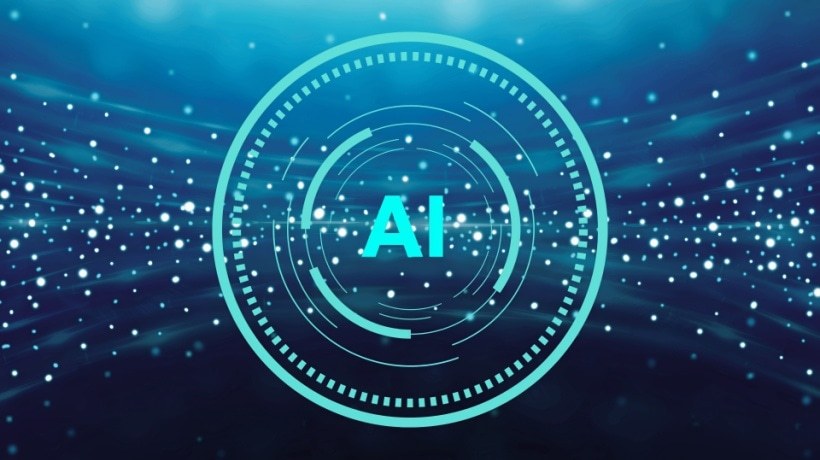Understanding Artificial Intelligence In eLearning
In order to appreciate the benefits, it is important to define AI in the context of eLearning. In eLearning, AI algorithms analyze data, adapt learning paths, and provide personalized feedback, among other capabilities. This intersection of AI and eLearning is where innovation takes place.
Defining AI In The Context Of eLearning
AI in eLearning goes beyond automated systems. It embraces the concept of intelligent machines that can simulate human cognition to understand, analyze, and make decisions based on data. By leveraging AI, eLearning platforms can create adaptive learning experiences that cater to individual learners' needs.
Imagine a scenario where a student is struggling with a particular concept in a course. With AI in eLearning, the platform can analyze the student's performance data and identify the areas where they are facing difficulties. Based on this analysis, the AI algorithm can then generate personalized learning materials and resources specifically designed to address the student's weak points. This tailored approach not only enhances the student's understanding but also boosts their confidence and motivation to continue learning.
Furthermore, AI in eLearning can also provide real-time feedback to learners. Traditional eLearning platforms often rely on delayed feedback, where learners have to wait for instructors to review their work and provide comments. However, with AI, learners can receive immediate feedback on their assignments, quizzes, and assessments. This instant feedback allows learners to identify and rectify their mistakes promptly, leading to a more efficient learning process.
The Evolution Of AI In eLearning
The use of AI in eLearning has evolved over time. Initially, AI was primarily used for basic tasks like automated grading and assessment. However, with advancements in technology, AI has now become more sophisticated, offering features such as personalized learning paths, real-time feedback, and interactive learning environments.
One of the significant advancements in AI in eLearning is the development of Intelligent Tutoring Systems. These systems use AI algorithms to create virtual tutors that can guide learners through the learning process. These virtual tutors can adapt their teaching methods based on the learner's progress and individual learning style. They can also provide additional explanations and examples when needed, ensuring that the learner grasps the concepts effectively.
Another area where AI has made a significant impact in eLearning is in the creation of interactive learning environments. AI algorithms can analyze learner behavior and preferences to create engaging and interactive learning experiences. For example, AI can generate virtual simulations and scenarios that allow learners to apply their knowledge in a practical setting. This hands-on approach enhances the learning experience and promotes active participation.
As AI continues to advance, the possibilities for its integration into eLearning are endless. From intelligent content creation to personalized learning analytics, AI has the potential to revolutionize the way we learn and acquire knowledge.
The Role Of AI In Personalized Learning
Personalized learning is one of the key areas where AI can make a significant impact. With AI algorithms, eLearning platforms can analyze vast amounts of data to understand learners' strengths, weaknesses, and preferences. This information is then used to tailor learning content and activities to meet individual learners' needs. But what exactly does personalized learning with AI look like? Let's dive deeper into the different aspects of AI's role in personalized learning.
1. AI And Adaptive Learning Paths
AI algorithms can analyze learners' performance and behavior to dynamically adjust the learning content and sequence. This allows learners to focus on areas requiring improvement, maximizing their learning outcomes. Imagine a scenario where a student is struggling with a particular concept in math. With AI-powered adaptive learning, the system can recognize this struggle and provide additional resources, such as interactive tutorials or practice exercises, specifically targeted at addressing the student's weaknesses. As the student progresses and gains mastery, the system adapts again, presenting more challenging material to keep them engaged and continuously learning.
2. AI In Learning Analytics
AI in eLearning also plays a vital role in learning analytics. It can analyze learners' interactions with the system, track progress, and identify learning gaps. Using this data, educators can gain valuable insights into learners' performance and make data-driven decisions to optimize the learning experience.
Let's consider a scenario where a teacher wants to understand how well their students are grasping a particular topic. By leveraging AI-powered learning analytics, the teacher can access detailed reports that provide an overview of each student's progress, highlighting areas where they may be struggling or excelling. Armed with this information, the teacher can then tailor their instruction to better meet the needs of each individual student, providing additional support or challenging activities as necessary.
Furthermore, AI can also help identify patterns and trends in learning data that may not be immediately apparent to human educators. By analyzing large datasets, AI algorithms can uncover correlations between different learning strategies, student demographics, and academic success. This information can then be used to inform educational policies and practices, leading to more effective personalized learning experiences for all students.
In conclusion, AI's role in personalized learning goes beyond simply providing tailored content. It empowers educators with valuable insights and tools to create truly adaptive and data-driven learning environments. As AI continues to advance, we can expect even more exciting developments in the field of personalized learning, ultimately leading to improved educational outcomes for learners of all ages.
Enhancing Engagement With AI
Engagement is a critical aspect of effective eLearning. In today's fast-paced digital world, learners need to be captivated and motivated to fully absorb and retain information. Fortunately, AI technology has emerged as a powerful tool to enhance engagement in eLearning. By leveraging AI algorithms, eLearning platforms can integrate gamification elements and create interactive learning environments that truly captivate learners.
1. AI In Gamification For eLearning
Gamification is a proven strategy to motivate and engage learners. By introducing game-like elements such as badges, leaderboards, and rewards, eLearning platforms can transform the learning experience into an immersive and enjoyable journey. But how can AI take gamification to the next level?
AI algorithms have the ability to analyze learners' preferences and performance data, enabling eLearning platforms to provide personalized gamified experiences. Imagine a scenario where an AI-powered eLearning platform not only tracks your progress but also understands your learning style, interests, and areas of improvement. Based on this knowledge, the platform can dynamically adapt the gamification elements to suit your individual needs, making the learning experience even more engaging and tailored to your preferences.
Furthermore, AI can also introduce intelligent challenges and adaptive difficulty levels in gamified eLearning courses. As you progress through the course, the AI algorithm can continuously assess your performance and adjust the difficulty of the challenges accordingly. This ensures that you are always challenged enough to stay motivated, but not overwhelmed to the point of frustration. The AI algorithm can also provide targeted feedback and suggestions to help you improve your performance, making the learning process more effective and rewarding.
2. AI And Interactive Learning Environments
Another way AI can enhance engagement in eLearning is by creating interactive learning environments. Traditionally, eLearning has been a solitary experience, with learners navigating through pre-designed courses and materials. However, AI technology can change this by introducing real-time communication and personalized assistance.
One example of AI-driven interactivity is the use of chatbots in eLearning platforms. These intelligent virtual assistants can facilitate real-time communication between learners and educators. Imagine having a chatbot that can answer your questions, provide explanations, and offer personalized assistance whenever you need it. This not only creates a more interactive and supportive learning environment but also saves time and resources for educators who can focus on more complex tasks.
Furthermore, AI-powered chatbots can also provide instant feedback on your progress, helping you identify areas of improvement and guiding you toward further learning resources. They can even adapt their responses based on your individual learning style and preferences, ensuring that the assistance provided is tailored to your unique needs.
Additionally, AI can enable collaborative learning experiences by facilitating virtual group discussions and peer-to-peer interactions. AI algorithms can analyze learners' profiles and interests to form study groups or recommend potential collaborators, fostering a sense of community and collaboration in the eLearning environment.
In conclusion, AI technology has immense potential to enhance engagement in eLearning. By leveraging AI algorithms, eLearning platforms can create personalized and immersive gamified experiences, as well as interactive learning environments that foster real-time communication and personalized assistance. As AI continues to evolve, the possibilities for enhancing engagement in eLearning are endless, promising a future of more effective and enjoyable learning experiences.
AI In Assessment And Feedback
Assessment and feedback play a crucial role in the learning process. By incorporating AI, eLearning platforms can automate grading and provide instant feedback, streamlining the assessment process.
1. Automated Grading With AI
AI algorithms can evaluate learners' performance based on pre-defined criteria, eliminating the need for manual grading. This not only saves time but also provides learners with immediate feedback, allowing them to gauge their progress and make necessary improvements.
2. Real-Time Feedback Through AI
AI can provide learners with real-time feedback on their progress. By analyzing learners' responses and interactions, AI algorithms can identify areas where learners need additional support or clarification. This timely feedback helps learners stay on track and reinforces their understanding.
The Future Of AI In eLearning
The rapid evolution of AI in eLearning promises exciting possibilities for the future. Emerging trends and challenges in this field are worth exploring to ensure the successful implementation of AI-driven eLearning.
Emerging AI Trends In eLearning
In the future, AI is expected to make leaps in Natural Language Processing (NLP) and speech recognition, enabling more natural and interactive learning experiences. Additionally, AI is likely to play a larger role in automating content creation and expanding adaptive learning capabilities.
Potential Challenges And Solutions In AI-Driven eLearning
While AI brings immense potential to eLearning, it also raises challenges such as data privacy, bias in algorithms, and ethical considerations. Addressing these challenges will require robust regulations, transparency, and ongoing dialogue between educators, learners, and AI experts.
Conclusion
In conclusion, AI has immense benefits in eLearning. From personalized learning to enhanced engagement, AI technology facilitates a more effective and tailored learning experience. As AI continues to evolve, it is essential to stay updated with emerging trends and address potential challenges to fully harness its potential in eLearning.









